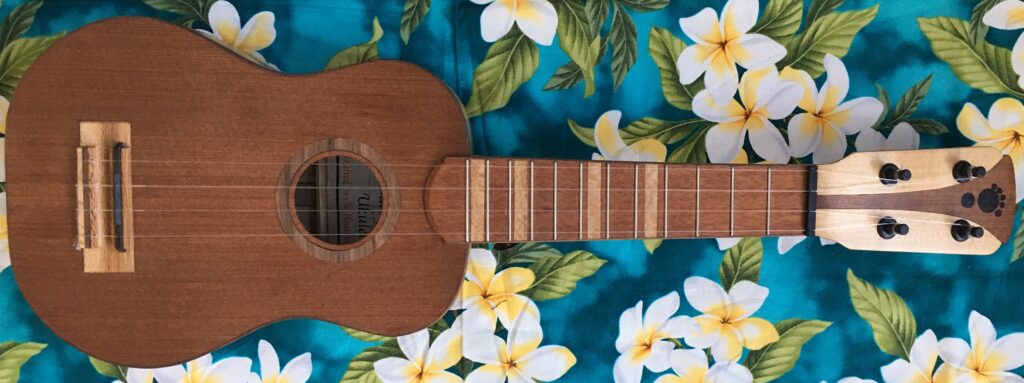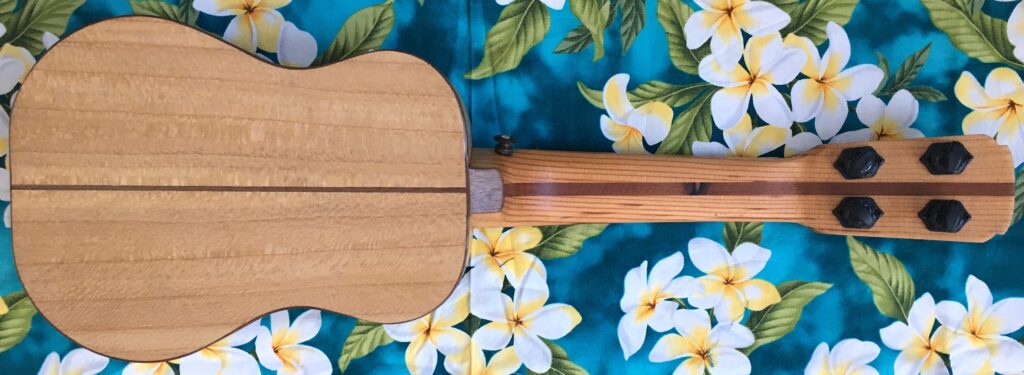This soprano has my second attempt at adding binding to the top and back. Binding is still proving a challenge. I think the outcome was better than my first attempt, but there are too many flaws. Sound-wise, I’m very pleased with the results. It has very good volume and sustain for a soprano and a clear, bright tone. One thing that’s becoming all too consistent is the “hands of the maker” evidence. Applying the finish reveals all flaws. If I were a perfectionist, I would go back and try to smooth out the blemishes.
The wood used in this ukulele came from multiple sources. The fir for the neck and most of the redwood are from the home of my wife’s family in Kailua, HI. The combination makes the ukulele special from a couple of angles: the connection to Kitty’s family and the birthplace of the ukulele. The sycamore and black walnut are from my favorite local source, Omaha Wood Co. The redwood strip in the center of the neck sandwich came from a friend’s fence post. The ebony was a gift from my uncle, Gerry VanNess. The teak (tentative identification) was salvaged from a Southeast Asian shipping crate.
The ukulele is numbered 2401-09 on the label.
The components are:
Redwood top (2-piece)
Sycamore back (2-piece)
Sycamore sides (2-piece)
Black walnut binding (body & fretboard)
Douglas (?) fir and redwood neck
Sycamore and redwood face plate
Teak (?) fretboard with sycamore fret markers (5th, 7th, 10th, and 12th frets)
Unspecified softwood fret dots
Sycamore bridge with black walnut inlay
Ebony nut and saddle (compensated)
Black walnut back stripe
Black walnut tail stripe
Black walnut heel cap
Black walnut sound hole rosette
Wenge strap buttons
Ebony dust and epoxy headstock logo
Graphtec tune-a-lele tuners
UkeLogic fluorocarbon strings (soft tension, high G)
Tru-Oil finish
Weight: 11.0 oz. (313 g) (with strap buttons)
Sound sample of Aloha ‘Oe (Queen Lili’uokalani) and the intro & outro to Israel Kamakawiwo’ole’s Over the Rainbow.




